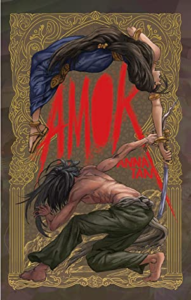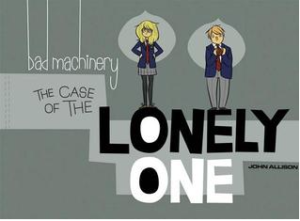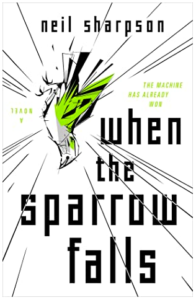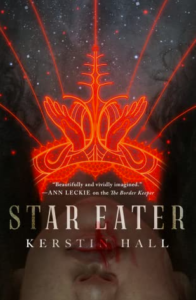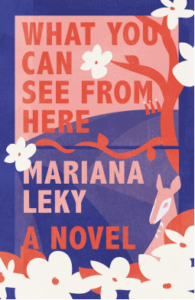I don’t know how to properly express the depth of my love for this extraordinary, brilliant book. It’s a book of revolutions and subversions, of challenging the status quo and thinking, really thinking about who gets to be a hero, and who deserves our sympathy and, most of all, who we should strive to be. Which last, in the hands of any other writer, would veer on the edge of moralizing claptrap. But J. P. Oakes gets to the heart of it here, telling us to try our hardest even if we can be
not satisfied, but at peace with the little [we have] done, with the knowledge that others will still be able to carry on the fight.
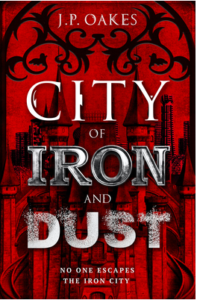 God, this book made me cry and laugh and upended all my expectations of what fantasy fiction can do. Because, in addition to being a really terrific industrial fantasy novel, set on a single night of upheaval and rebellion, it’s also a clever as hell tale of a drug heist gone awry and how that winds up signifying politically, as various factions chase down what the author slyly implies in the beginning is a mere McGuffin (mild spoiler: it’s not.)
God, this book made me cry and laugh and upended all my expectations of what fantasy fiction can do. Because, in addition to being a really terrific industrial fantasy novel, set on a single night of upheaval and rebellion, it’s also a clever as hell tale of a drug heist gone awry and how that winds up signifying politically, as various factions chase down what the author slyly implies in the beginning is a mere McGuffin (mild spoiler: it’s not.)
But let’s begin with the setting. Decades past, the goblin tribes united under the banner of Mab and swept south from their ancestral lands, subjugating the various fae in their path. Triumphant, they built the Iron City, a vast metropolis ruled by the five Goblin Houses and encircled entirely by an iron wall that not only cuts their subject fae off from magic but also infects the fae with sickness. The underclass has tried to rebel but each uprising has been quashed. Many fae turn to Dust, a drug that evokes just a little bit of their gone-away magic, in order to escape their increasingly nightmarish reality. But hope is not an ember easily extinguished, and on this one night, various goblins and fae from all strata of society will be drawn together in a web of magic and mayhem to fight, for the city or for themselves and sometimes for both at once.
Our point-of-view characters include Jag, a young goblin heiress fascinated with the fae and their artistry; her half-sister and bodyguard Sil; Edwyll, an idealistic fae artist searching for a patron; Knull, his cynical drug-dealing older brother; Bee, the thoughtful young member of the Fae Liberation Front; Skart, the de facto leader of the revolution, and Granny Spregg, the scheming former head of the goblin House Spreggan. As alliances form and shift, as betrayals and reversals rend and kill, these seven show us the full picture of a night that will change them all and the Iron City forever.

